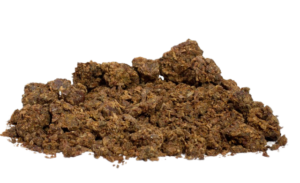
Propolis as a natural antibiotic
Propolis is a natural remedy that can offer many healing benefits for various health conditions.
Propolis has natural antibiotic properties due to its various antimicrobial compounds, including flavonoids, phenolic acids, and terpenes.
Unlike conventional antibiotics, which are often associated with side effects and the development of antibiotic resistance, propolis has a low risk of adverse effects and is not associated with the development of resistance. Propolis has been shown to be effective against a wide range of microorganisms, including bacteria, viruses, and fungi. It can inhibit the growth of harmful bacteria such as Streptococcus and Staphylococcus, and it can also prevent viral replication, making it useful for treating conditions such as colds and flu.
Propolis is a resin-like substance that bees collect from trees and plants to protect their hives from bacteria, viruses, and fungi. Propolis has been used for medicinal purposes for centuries, and its healing benefits are widely recognized. Overall, propolis is a natural remedy that can offer many healing benefits for various health conditions.
Composition of Propolis
The composition of propolis can vary depending on the geographic location and the types of plants available to the bees. However, propolis typically contains the following components:
- Resins and balsams: These are complex mixtures of plant compounds that give propolis its adhesive properties. They can include compounds such as flavonoids, terpenes and phenolic acids, that have antimicrobial properties.
- Beeswax: This is a natural wax produced by the bees that helps to give propolis its solid texture.
- Essential oils: These are volatile compounds that contribute to the aroma and flavor of propolis. They can include compounds such as eucalyptol, limonene, and pinene.
- Pollen: Propolis can contain small amounts of pollen, which may contribute to its nutritional value.
- Minerals: Propolis can also contain trace amounts of minerals such as zinc, magnesium, and iron.
The various components of propolis have antimicrobial, anti-inflammatory, and antioxidant properties. Here are some common uses of propolis as a natural antibiotic:

Antibacterial and antiviral properties
Propolis can be used topically to treat bacterial, fungal, and viral infections, including Streptococcus, Staphylococcus, and influenza, cold sores, canker sores, and fungal nail infections. Apply a propolis ointment, cream or raw propolis directly to the affected area to promote healing and prevent further infections.
Anti-inflammatory properties
Propolis contains compounds that can reduce inflammation in the body. This makes it useful for treating conditions such as arthritis, asthma, and skin conditions like eczema and psoriasis.
Anti-parasitic
Propolis has been found to have potential anti-parasitic properties. Several studies have investigated the effects of propolis on a variety of parasites, including protozoa and helminths.
Boosting the immune system
Propolis can be taken orally as a daily supplement to stimulate the immune system, making it useful for preventing and treating infections and other immune-related conditions. It can also be used as a natural remedy for colds, flu, and other respiratory infections.
Wound healing and skin regeneration
Propolis has been shown to speed up the healing of wounds, acne, eczema and burns. It can also reduce scarring, infections and inflammation. Apply brut propolis directly to the affected area. Leave it on for a few hours.
Oral health and hygiene
Propolis can be added to toothpaste or mouthwash to help prevent dental plaque, gum inflammation, and tooth decay, even abscesses. It can also be applied directly to canker sores or other oral infections to promote healing and relieve pain.
Supporting digestive health
Propolis can be used to treat digestive disorders such as ulcers, gastritis, and diarrhea. It can help to reduce inflammation, prevent infections, and promote healing in the digestive tract.
Respiratory infections
Propolis can be added to a bowl of hot water and inhaled to help relieve respiratory infections and promote clearer breathing. It used against sore throat, angina, bronchitis, otitis etc.
Gynecological and urinary conditions
Propolis has been used in traditional medicine for various gynecological and urinary conditions, including cystitis, vaginitis (including mycosis), and prostatitis. Recent studies have investigated the potential benefits of propolis for these conditions.
For example, a study published in the Journal of Alternative and Complementary Medicine found that propolis was effective in treating chronic bacterial prostatitis. The study participants were given propolis extract for 12 weeks, and the results showed a significant improvement in symptoms compared to the placebo group.
Another study published in the Journal of Ethnopharmacology found that propolis had potent antifungal activity against Candida albicans, which is a common cause of vaginal yeast infections. The study suggested that propolis could be a potential alternative treatment for vaginal mycosis.
Furthermore, a study published in the International Journal of Antimicrobial Agents found that propolis had antibacterial activity against a variety of pathogens that commonly cause urinary tract infections, including Escherichia coli, Proteus mirabilis, and Klebsiella pneumoniae.
A study conducted by Japanese scientists investigated the effects of propolis on cancer patients undergoing chemotherapy. The study found that propolis helped to support chemotherapy and acted in synergy with conventional treatments. After one month of propolis treatment, the patients’ red and white blood cells were stabilized, which is an important factor in cancer treatment as chemotherapy can cause a decrease in these cells.
The study suggests that propolis could be a useful addition to cancer treatment as it may help to alleviate some of the side effects of chemotherapy and improve the overall effectiveness of treatment.
Propolis can be used in various forms, including capsules, tinctures, creams, ointments and raw.
Please note, propolis can cause allergic reactions in some people, especially those who are allergic to bees or bee products. If you have any concerns or questions about using propolis, it’s important to consult with a healthcare provider.